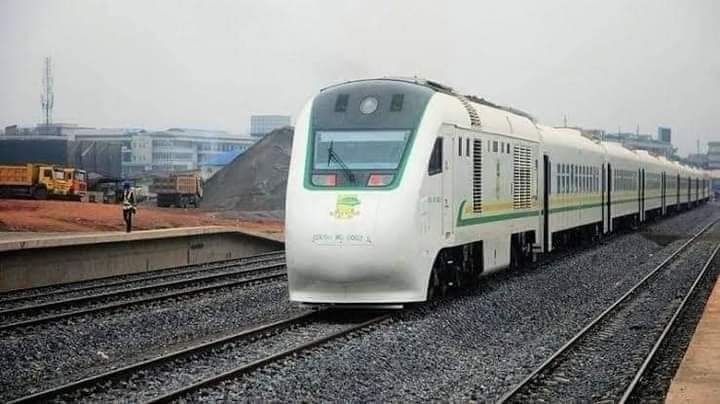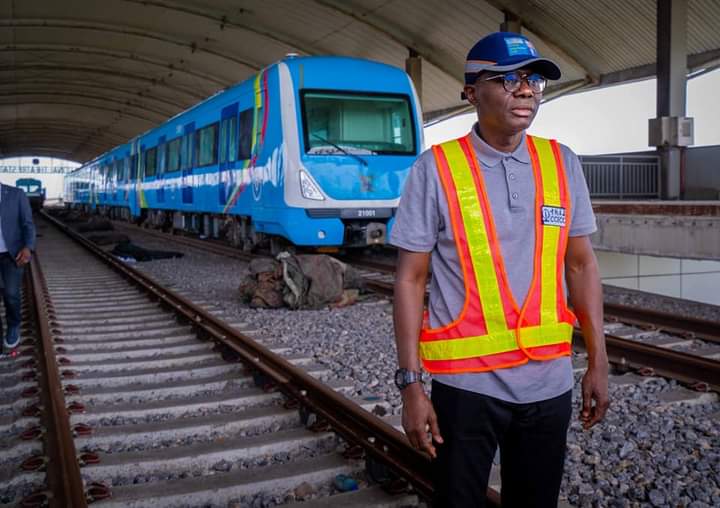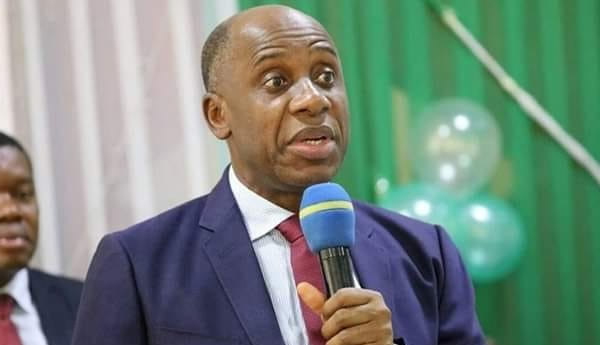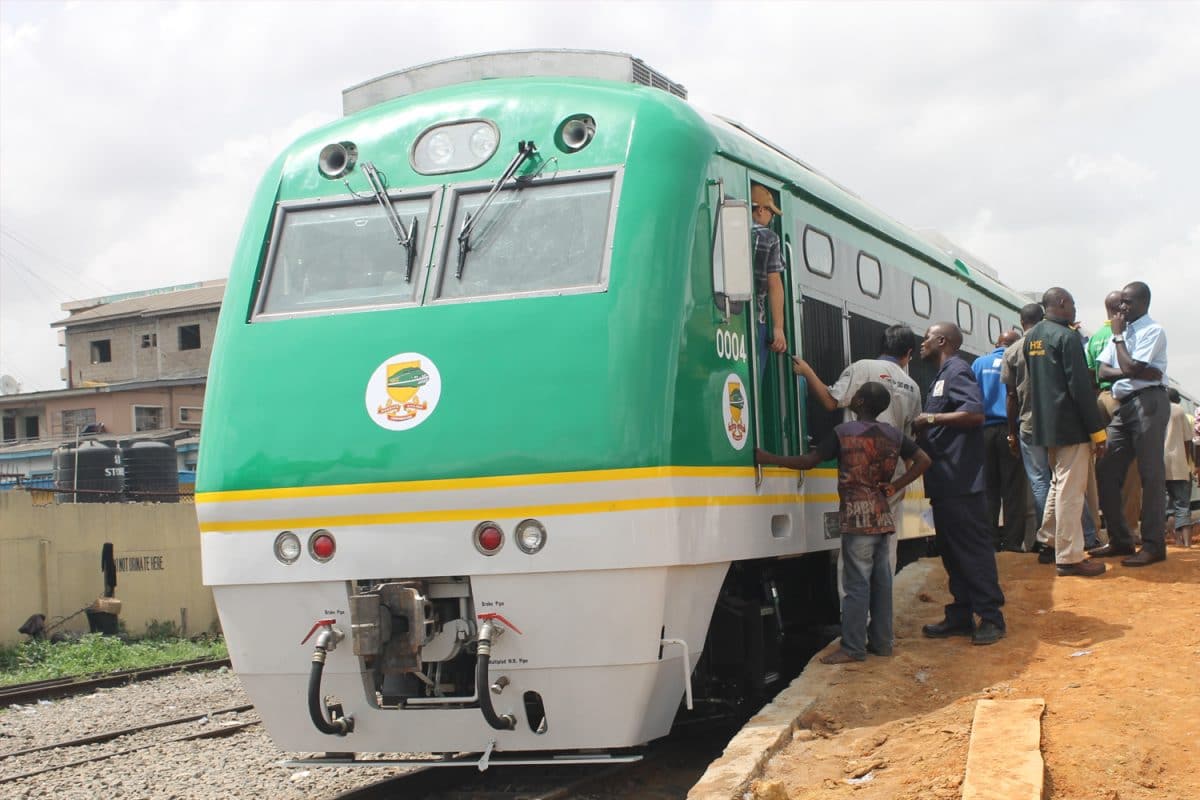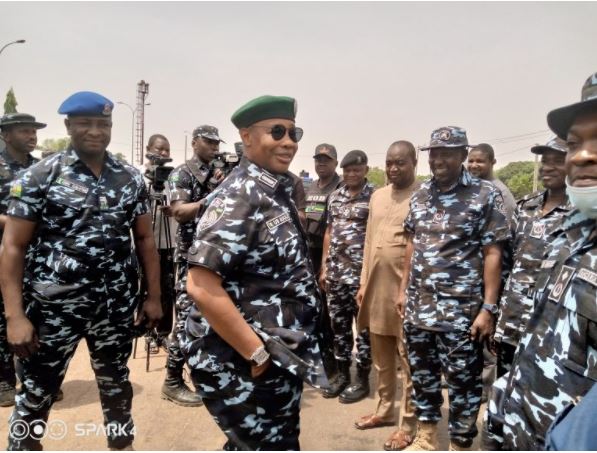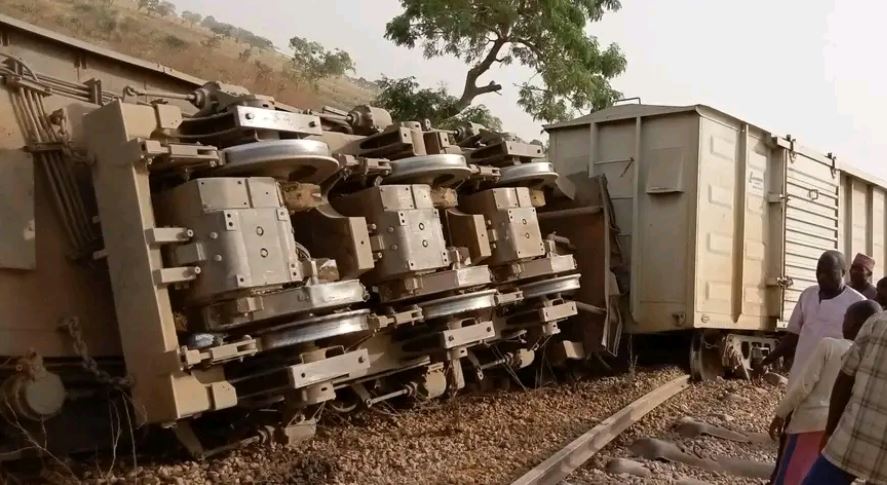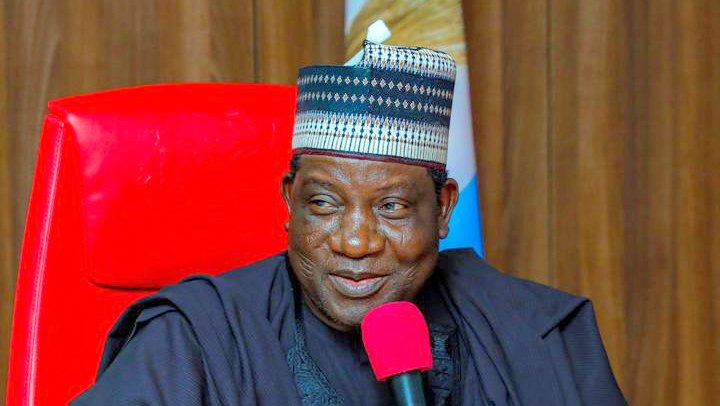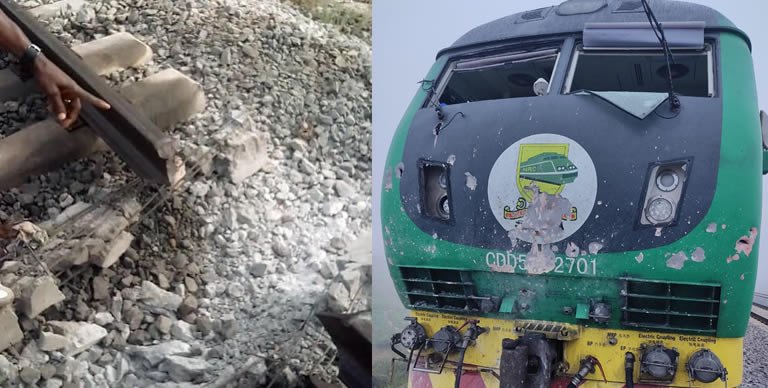President Muhammadu Buhari has assured families of those kidnapped by bandits in the ill-fated Abuja-Kaduna train service of March 28 that efforts were on-going to ensure their safe return.
The president gave the assurance on Monday in Abuja when he hosted residents of the FCT who paid him Sallah homage.
He directed security agencies and the Nigerian Railway Corporation (NRC) to provide detailed information to families of the victims regularly saying government would explore every opportunity to secure their return alive and unhurt.
“As we celebrate this occasion with joy amidst friends and family members, we are fully conscious of the fact that many families in our country are in a state of fear and anxiety.
“This is on account of the many captives held by terrorists against their will; including those taken away in the tragic attack of the Abuja-Kaduna train service.
“I have directed security agencies to ensure quick and safe recovery of all victims of kidnapping.
“I urge the Railway management to immediately set up a situation room for the coordination of the rescue mission and for a minute-by-minute engagement with families of the captives.
“This should ease their pain and anxiety as we push the military to ensure their safe return to their families. My aim is to see all those in captivity safely rescued.
“Let me assure Nigerians that the bandits are just pushing their luck, but this is only for a while before they are finally crushed.
“They are using civilians as human shields, thereby making it difficult to confront them directly,’’ he said.
According to the president, bandits and terrorists, unlike professional soldiers, don’t respect the rules of engagement and can resort to harming hostages when attacked.
“They don’t care about killing their hostages if they come under attack. It’s a delicate situation that requires wisdom, caution and also patience.
“Any rescue operation that results in the death of any hostage cannot be deemed a success.
“Government doesn’t want this kind of tragic outcome. It’s a complex situation that demands proper handling.
“The primary objective of any rescue operation is to free the hostages safely, unharmed and alive.
“Let me make it clear, however, that defeating the terrorists and bandits requires more than weapons; we also need human intelligence which is necessary to frustrate terrorists’ plans.
“The people and community leaders should help our security officials with information about the activities or movements of criminal groups,’’ Buhari stressed.
The president urged Nigerians to create a hostile environment for criminals hiding in communities, admonishing that “by protecting criminals from exposure, you are endangering your own security and the security of your own community.
“No criminal can thrive in an environment where he faces the risks of exposure by the people.’’
According to him, a stronger synergy between security agencies and communities will make a huge difference in defeating banditry and terrorism.
President Buhari allayed fears that bandits would grow to yet another big challenge as faced by the Boko Haram threat, assuring that the administration would not allow such to happen.
“This administration has allocated huge resources to improve the capacity of our security forces by timely giving them adequate equipment and improving the welfare of personnel to boost their morale.
“Abuja has witnessed remarkable improvement in terms of security.
“In the past, terrorists made it almost impossible to conduct our normal lives. Road barricades had overrun the capital city and people had to pray in fear because of the anxiety of terrorists’ attacks.
“No place in the FCT was beyond the terrorists. Not even the United Nations building; not even the Police Headquarters.
“Today, the situation is no longer so.
“We have significantly weakened and crippled the capabilities of the Boko Haram terrorists so much that they no longer have the ability to seize, and occupy any Nigerian territory without being repelled by our gallant troops.
“Of course, we can’t say that the terrorists are 100 per cent destroyed, but we have destroyed their ability to seize our territory.
“This improvement in terms of significantly weakening the enemy is necessary for finally defeating them.
“The rate at which the terrorists are giving up their weapons and surrendering to our troops is a significant and welcome development,’’ he told his visitors.
The president commended the FCT Minister, Mohammed Bello, for “diligently ensuring the capital city stays safe and attractive’’.
He also thanked FCT residents for visiting the Presidential Villa.
“It’s my pleasure to welcome you all to the Presidential Villa. As is the tradition, people pay homage to the president as part of events to mark the Sallah celebrations.
“I value these kinds of visits because they afford me the opportunity to interact directly with the people or with their representatives.
“I commend FCT residents for living in peace and harmony for years since the capital officially came into being,’’ the president said.
President Buhari stated that the welfare of the people of Abuja and that of all Nigerians would continue to remain paramount in government’s agenda.
“The physical development of Abuja and the provisions of infrastructure is our priority.
“Since the coming of this administration, we have made the completion of abandoned and on-going projects our priority.
“For Abuja to attract investors as its population expands exponentially, the provision of infrastructure is essential.
“A federal capital should answer its name and it cannot do so if it lacks the necessary infrastructure to accommodate and accelerate development.
“Abuja has expanded beyond the imagination of even its planners.
“This expansion comes with great challenges. In line with its objectives to transform Abuja into a befitting modern city, the FCT administration under the minister, Mohammed Bello, has been doing a great job,’’ he added.
According to him, the completion of the Abuja Light Rail is one of the major projects embarked upon by his administration for inhabitants as development of infrastructure remains essential to economic growth.
He said government would continue to pay serious attention to internal and arterial roads to other states, and to electricity.
“Our priority is the welfare of the people.
“The Second Niger Bridge which has dragged on for years is now to be completed by this government in October this year,’’ Buhari added.
Vice-President Yemi Osinbajo, who was also present, expressed his gratitude to the president on behalf of all the invited guests for hosting the homage.
He recalled the last time such gathering was possible was in 2019 before the COVID-19 pandemic.
“We thank God Almighty for giving us back such opportunity. It also tells us that indeed everything and all belong to Almighty God.
“If this programme had held at your residence, Mr President, it would not have taken this large people, I think that even COVID-19 has a silver lining; here we are with so many people who are able to come.
“This is a perfect opportunity to thank God that our nation is together and united in spite of challenges faced which are not peculiar to our nation.
“I want to thank Almighty God, Mr President, for giving you all that you have required and life to continue to tackle these challenges and surmount them.
“I pray the Almighty God to help you and help our government to tackle every one of these challenges as we confront them,’’ Osinbajo said.
In his remarks, the Minister of the FCT, Mohammed Bello, expressed gratitude to God and to the president for the opportunity to pay the traditional Sallah homage at the State House.
He also noted that the last time such homage held was on June 4, 2019 when residents came during the Eid al-Fitr.
“I want to thank you also for graciously agreeing to allow us to come in with a high number of people representing a very large spectrum of the FCT community.
“Visitors here include religious leaders of various denominations, the Muslim and the Christian faith, community leaders, the Judiciary, members of the National Assembly representing the FCT as well as other stakeholders,’’ Bello said.
